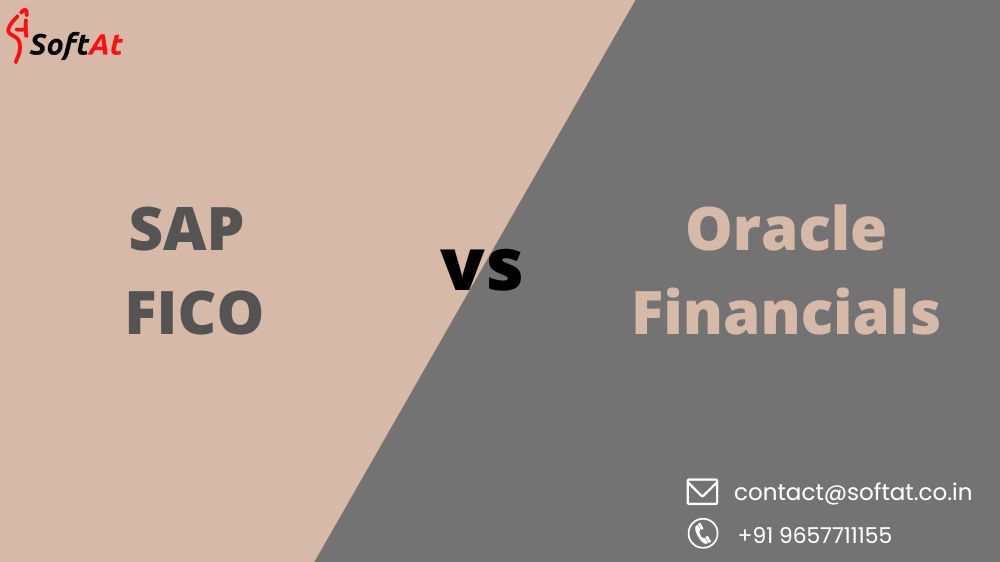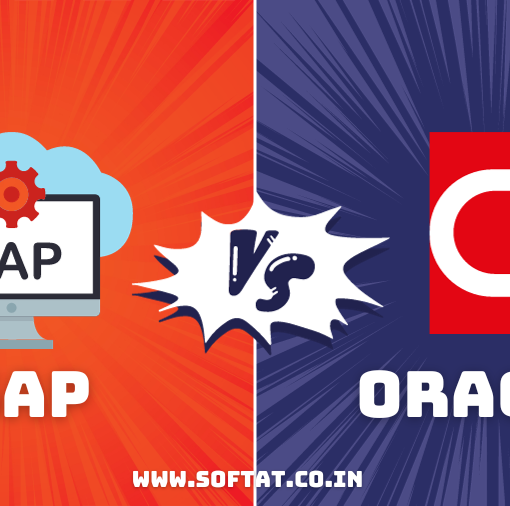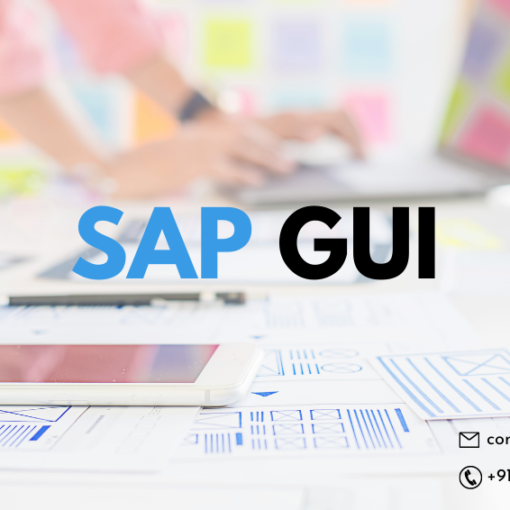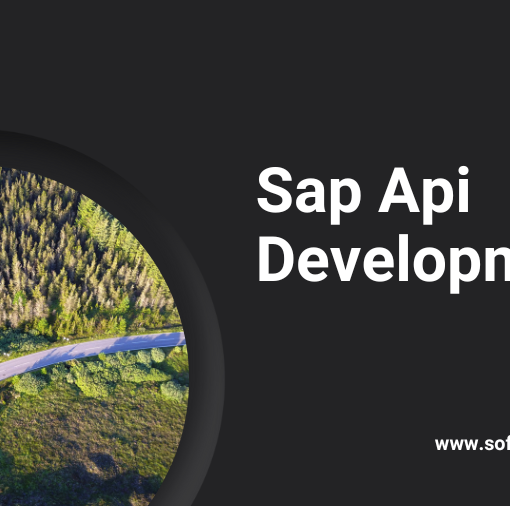Different technologies and tools are used by SAP FICO vs Oracle Financials, respectively. These are two distinct software disciplines. Given that each requires different conditions, we shouldn’t compare the two. Whether a person chooses SAP or Oracle depends on his or her interests.
While some claim that SAP FICO is more popular than other software technologies, some claim that Oracle has a solid future outlook. But every new technology nowadays is in direct competition with one another. Let’s now take a quick look at SAP FICO vs Oracle Financials.
SAP
German software company SAP was founded by five former IBM employees. SAP is a forward-thinking, quick-moving organization that is also constantly expanding into new industries and buying new businesses, the most recent of which being cloud services. This is required in the quick-changing world of IT. Today, SAP is the third-largest independent software supplier in the world and the global leader in business applications. With customers in 190 different countries, there are plenty of opportunities for IT professionals to enter this sector and establish successful careers.
One of the most effective Enterprise Resource Planning (ERP) tools is SAP ERP. System, Applications, and Products (or SAP) is a data processing acronym created by the German company SAP AG. The three-tier client/server SAP R/3 system was first introduced in 1992 by the 1972-founded SAP AG. SAP offers the finest solutions for all business types and service areas. SAP has offered advancements in management in a variety of commercial and IT fields. It has a number of interconnected modules that virtually entirely cover every aspect of business management. SAP has a variety of modules, including SAP Sales and Distribution, SAP Material Management, SAP Production Planning, SAP Quality Control, SAP FICO, and others.
SAP FICO
One of the crucial functional modules of the SAP ERP parts, SAP FICO, assists the company in managing all of its financial data. SAP FICO’s main goal is to aid the company in producing and managing all financial statements for analysis and reporting, as well as to enable efficient business planning and decision-making. Each of SAP FICO’s two modules, SAP Finance (FI) and SAP Controlling (CO), is utilized to carry out particular financial procedures. While SAP CO emphasizes cost planning and monitoring, the SAP FI Module concentrates on comprehensive financial reporting and accounting. Although SAP FI and SAP CO were first published as different modules, they are now so tightly interwoven that most people refer to them as a single module.
Oracle
Oracle is a global American company that specializes in computer technology. Its main office is in Redwood Shores, California. The company provides business software products, cloud-based systems, database software, and technologies, particularly its own brands of database management systems. In 2019, Oracle ranked second among software companies in terms of sales and market value.
Additionally, the company develops and constructs tools for database improvement and systems of middle-tier software, including supply chain management (SCM), human capital management (HCM), and enterprise resource planning (ERP) software.
Oracle Financial:
A dynamic financial reporting tool is Oracle Financial. Oracle Financial has emerged as the preferred option for multinational corporations. Oracle, a market leader in applications, is used to describe a number of closely connected financial modules, including Oracle Assets, Oracle Ledger, and Oracle Payables. A total of more than 70 software modules make up this E-business Suite. Only personal computers, minicomputers, various operating systems, various networks, etc. are compatible with these modules. By using a standardized approach, e-suites business enables us to operate more efficiently and cost-effectively in the back office.
Difference Between Oracle & FICO
Today, SAP is essentially a dynamic package that enables users to integrate, diversify, and shape their work processes while maintaining multidimensional compatibility. The best SAP FICO training is Implementation & Configuration for those in the finance/accounting industry. The crucial core module of SAP Financial Accounting (FI) is where all financial processing activities are documented in real-time and used as the foundation for data extraction for external reporting.
The SAP FI Module is integrated with a number of parallel modules that change corporate operations and require the use of numerous code packages to unify processes. as opposed to Oracle financials, which may be a strong and dynamic instrument for financial coverage. Blue-chip firms, multinational corporations, and multi-site organizations now favor Oracle Finance. This is a robust, fully integrated E-business Suite program made up of over 70 software components.
Which is better SAP FICO or Oracle Financials?
The question of whether SAP FICO (Financial Accounting and Controlling) or Oracle Financials is “better” depends on various factors, including the specific needs and requirements of your business, your existing IT infrastructure, budget considerations, and the expertise of your team.
Both SAP FICO and Oracle Financials are highly regarded and widely used enterprise financial management solutions. Here are some key points to consider for each:
SAP FICO:
- Integration: SAP FICO is part of the SAP ERP suite, which offers seamless integration with other SAP modules like Sales and Distribution (SD) and Materials Management (MM). If your organization already uses other SAP solutions, implementing FICO may provide a more integrated ecosystem.
- Global Reach: SAP is known for its strong presence in multinational companies, and SAP FICO supports various legal and accounting requirements across different countries, making it suitable for global implementations.
- Industry-Specific Solutions: SAP provides industry-specific solutions that cater to specific business needs in various sectors, which can be advantageous for companies in those industries.
- Learning Curve: Implementing and customizing SAP can be complex and may require more time and effort to set up compared to some other solutions.
Oracle Financials (now known as Oracle Cloud ERP):
- Cloud-Based Solution: Oracle Financials is available as part of Oracle Cloud ERP, a cloud-based suite of applications. This means you can avoid the upfront cost of hardware and benefit from regular updates and maintenance provided by Oracle.
- User-Friendly Interface: Oracle Cloud ERP is known for its modern and intuitive user interface, which can enhance user adoption and productivity.
- Flexible and Scalable: Oracle Cloud ERP is designed to be flexible and scalable, making it suitable for businesses of various sizes and industries.
- Integration: While Oracle Cloud ERP integrates well with other Oracle Cloud applications, integration with non-Oracle systems may require additional effort.
Ultimately, the “better” choice between SAP FICO and Oracle Financials depends on your specific business needs, IT strategy, budget, and available resources. Before making a decision, it’s essential to conduct a thorough analysis of your organization’s requirements, evaluate the functionalities, capabilities, and cost of each solution, and consider the long-term benefits and challenges associated with implementation and maintenance.
Additionally, it may be helpful to engage with an experienced consultant or vendor specializing in both SAP and Oracle Financials to get a comprehensive understanding of how each solution aligns with your business objectives.
Conclusion
The SAP FI Module is coupled with a number of parallel modules that change company operations and necessitate the employment of several code packages to harmonize procedures. SAP FICO’s main goal is to aid the company in producing and managing all financial statements for analysis and reporting, as well as to enable efficient business planning and decision-making. as opposed to Oracle financials, which may be a strong and dynamic instrument for financial coverage. Blue-chip corporations, multinational corporations, and organizations with several locations have all started to use Oracle Financial.





